Member Directory,
1847 - 1922
Nicholas Murray Butler
Educator/Diplomat
Centurion, 1890–1947
Archibald Alexander and John S. Kennedy
Elizabeth, New Jersey
New York (Manhattan), New York
Age twenty-eight
Paterson, New Jersey
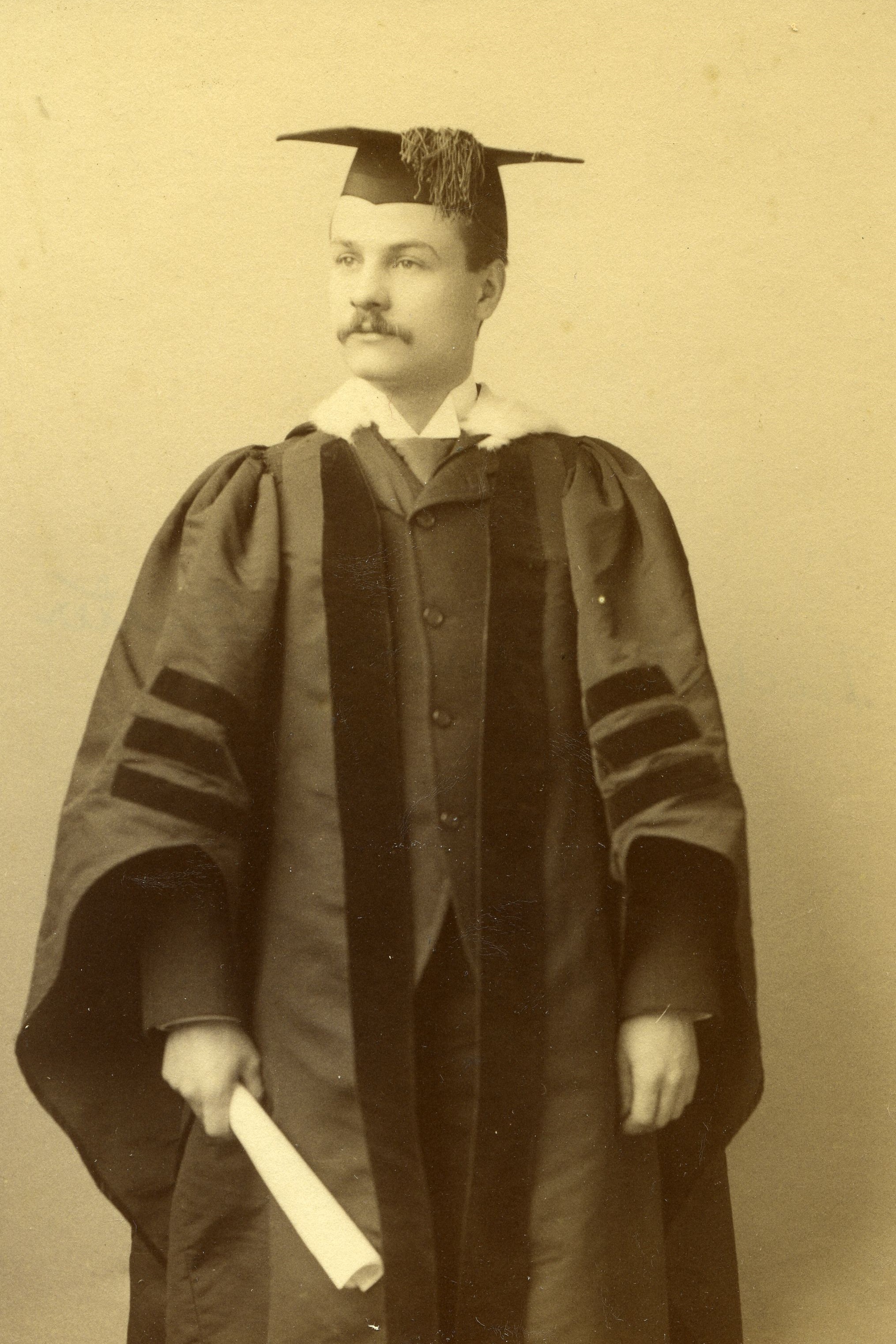
Archivist’s Notes
First vice president of the Century Association, 1928–1947; brother-in-law of Walter Butler Mahony
Century Memorial
Nicholas Murray Butler. [Born] 1862.
President of Columbia University; mason and architect of its greatness. First Vice-President of the Century for the last twenty years of his life: member of our Association for fifty-seven years.
Lord Morley, writing the Life of Gladstone several years after Gladstone’s death, remarked on his temerity in attempting to write the life at all—“the life of a man who held an imposing place in many high national transactions, whose character and career may be regarded in various lights, whose interests were so manifold, and whose years bridged so long a span of time.” Yet here am I, no Lord Morley, attempting, one month after Dr. Butler’s death, to write and read to his friends a memorial to his greatness, the greatness to which Lord Morley’s quoted words about Gladstone are wholly applicable. I can only plead that I have no choice; like all Centurions I would postpone the occasion forever.
At Dr. Butler’s funeral I could not rid myself of the thought, perhaps unworthy thought, that what the occasion lacked was a speech by Dr. Butler. I wanted to hear Dr. Butler on Dr. Butler. So here tonight, surely what we lack is Butler memorializing Butler; and the possible unworthiness of the thought lies only in the conviction how well he would do it! But is this truly an unworthy thought? I think not; for surely he knew our admiration and our affection; he knew our laughter and our tears; assuredly he knew at least a part of the world’s hostility towards him, product of hot controversy over great issues, its sometimes derisive smiles at the delineation evoked by Nicholas Miraculous, its interpretations and misinterpretations of his motives. And as Dr. Butler knew our admiration and our affection for him, no one of you will doubt that he, on his feet, could say better than any of us what he wanted to say; to say it in its largest setting, trained philosopher that he was; to say it in its historical perspective out of his unbelievably accurate memory of books and men and events, for as Aeneas said of the Trojan Wars “all of this I saw and part of this I was;” to say it affirmatively, great builder that he was; to say it destructively modern Cato that he was. Assuredly Butler on Butler would be—well, let me say it!—would be Butler; and who among you could possibly want more or better than that?
Just a year ago, you will remember, at our Centennial meeting, our President [Geoffrey Parsons] called Dr. Butler to his feet as one of our four living members who had been members in our old Club House on Fifteenth Street. He had no assigned topic, he had no manuscript, he was blind and the President had to help him face his audience; and what happened? Neither you nor anybody else ever heard a more fitting speech, one more suited to the occasion, one more exactly expressed or more artistically constructed.
After it he sent for me and asked, anxiously, if I had had a stenographer take it. I had and he told me he wanted two hundred copies. You smile now and I smiled then; but would you want him not sensitive enough to have known that he had made a good speech—or so self-centered that he did not care whether or not other friends could have a chance to read it? No, my friends, you would not; like me, you wanted him just the way he was.
At meetings of your Board of Management, the Secretary, by immemorial custom, sits on the right hand of the First Vice-President. Hence, during the three years I have been honored by the great office of the Century’s Secretary, I have sat next to Dr. Butler. During a large part of this time Dr. Butler was blind; during a shorter period he was deafened, but happily, his hearing improved; always his reserves of strength were low.
I wish I could share with you all in detail the things he said to me. But fortunately I can summarize them in his own words, spoken in this place at a meeting held in honor of his eightieth birthday. Loving him, you will hear him say it, despite the lack of magnificence of my own diction and through the emotion it will evoke:
“My fellow Centurions, is it not obvious that if there is to be leadership it must be from here? It is the Century and those who, like its membership, have this faith in ideals of intellect and the fine arts which must take the leadership in preventing the world from going into complete collapse. My fellow Centurions, we are much more than a club; we are even much more than an Association; we are a group of Americans, chosen from our population because we have faith in each other; because we have companionship with each other; and because we are willing to assume the responsibility for representing here in our social life, outside in our public life, everywhere in our personal life, responsibility for intellectual leadership in a world which without that leadership may slip backward far more than any of us suspect or can realize.
“Go back over the history of mind. Remember the times when achievement has been magnificent, when philosophers, historians, poets, dramatists, men of letters have been in the very front rank of accomplishment. Then remember what happened in the next hundred, two hundred, or three hundred years. You see the inheritance of ancient Greece blocked and overwhelmed. You see the inheritance of ancient Rome broken to pieces, and each piece struggling for itself. Then you see the modern era—spirit of liberty, spirit of liberalness, liberal democracy, freedom of the mind, freedom of thought, freedom of life—coming to take control of the Western peoples. The Century, in its membership, so representative and so magnificent, speaks to the world of today and tomorrow in its own quiet way for the preservation and the protection of those ideals.”
I have, you see, succeeded in what I have wanted all along, that Dr. Butler should write, if not speak, his own memorial. When dealing with Dr. Butler we have a world upon our hands and only Dr. Butler could be equal to it.
Source: Henry Allen Moe Papers, Mss.B.M722. Reproduced by permission of American Philosophical Society Library & Museum, Philadelphia
Henry Allen Moe
Henry Allen Moe Papers, 1947 Memorials
Related Members
Member Directory Home-
 Archibald AlexanderPhilosopher/EducatorCenturion, 1881–1917
Archibald AlexanderPhilosopher/EducatorCenturion, 1881–1917 -
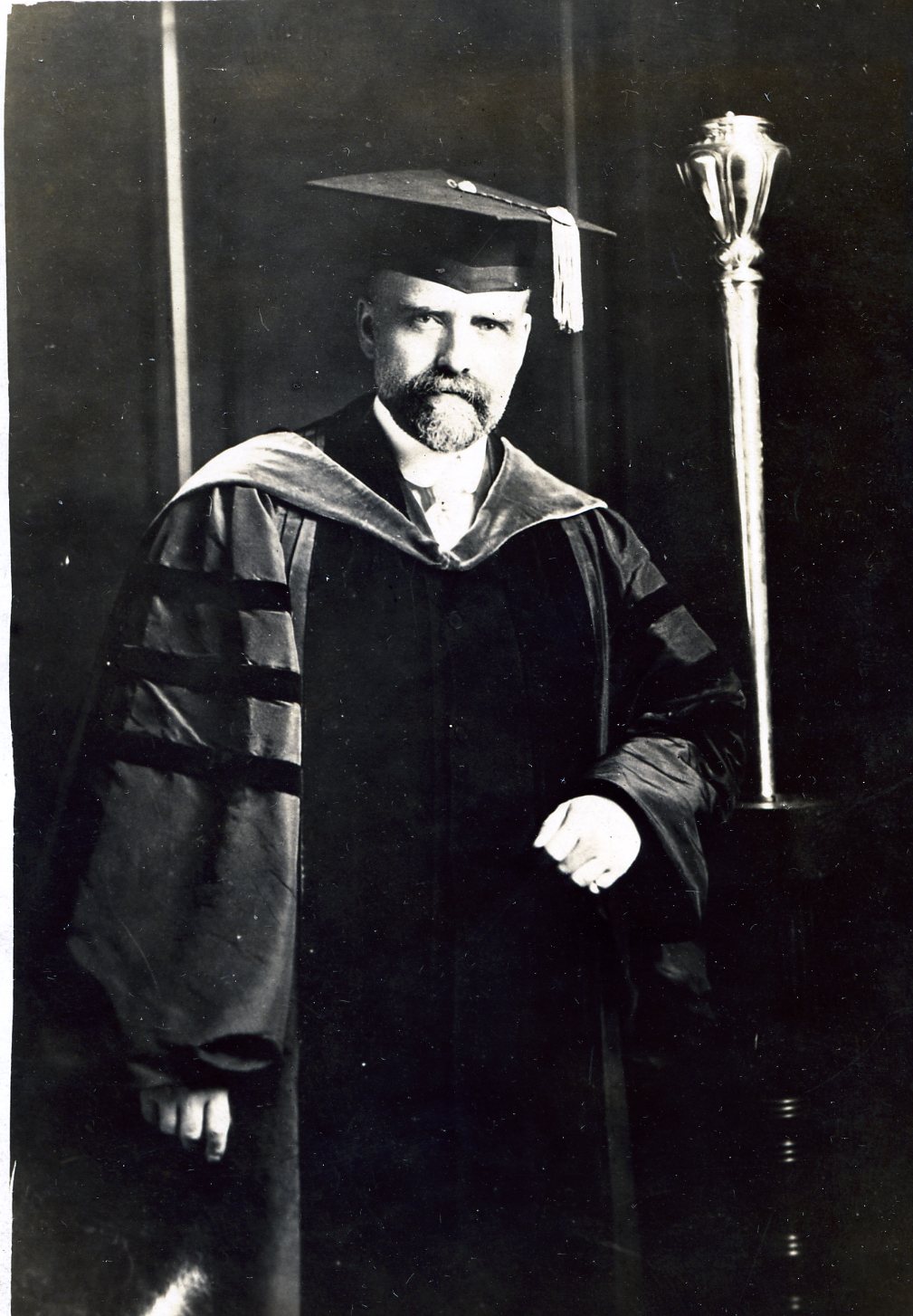 Elmer Ellsworth BrownChancellor, New York UniversityCenturion, 1912–1934
Elmer Ellsworth BrownChancellor, New York UniversityCenturion, 1912–1934 -
 Francis BrownPresident, Union Theological SeminaryCenturion, 1909–1916
Francis BrownPresident, Union Theological SeminaryCenturion, 1909–1916 -
 Alexander Smith CochranMerchant (Carpet Dealer)Centurion, 1914–1929
Alexander Smith CochranMerchant (Carpet Dealer)Centurion, 1914–1929 -
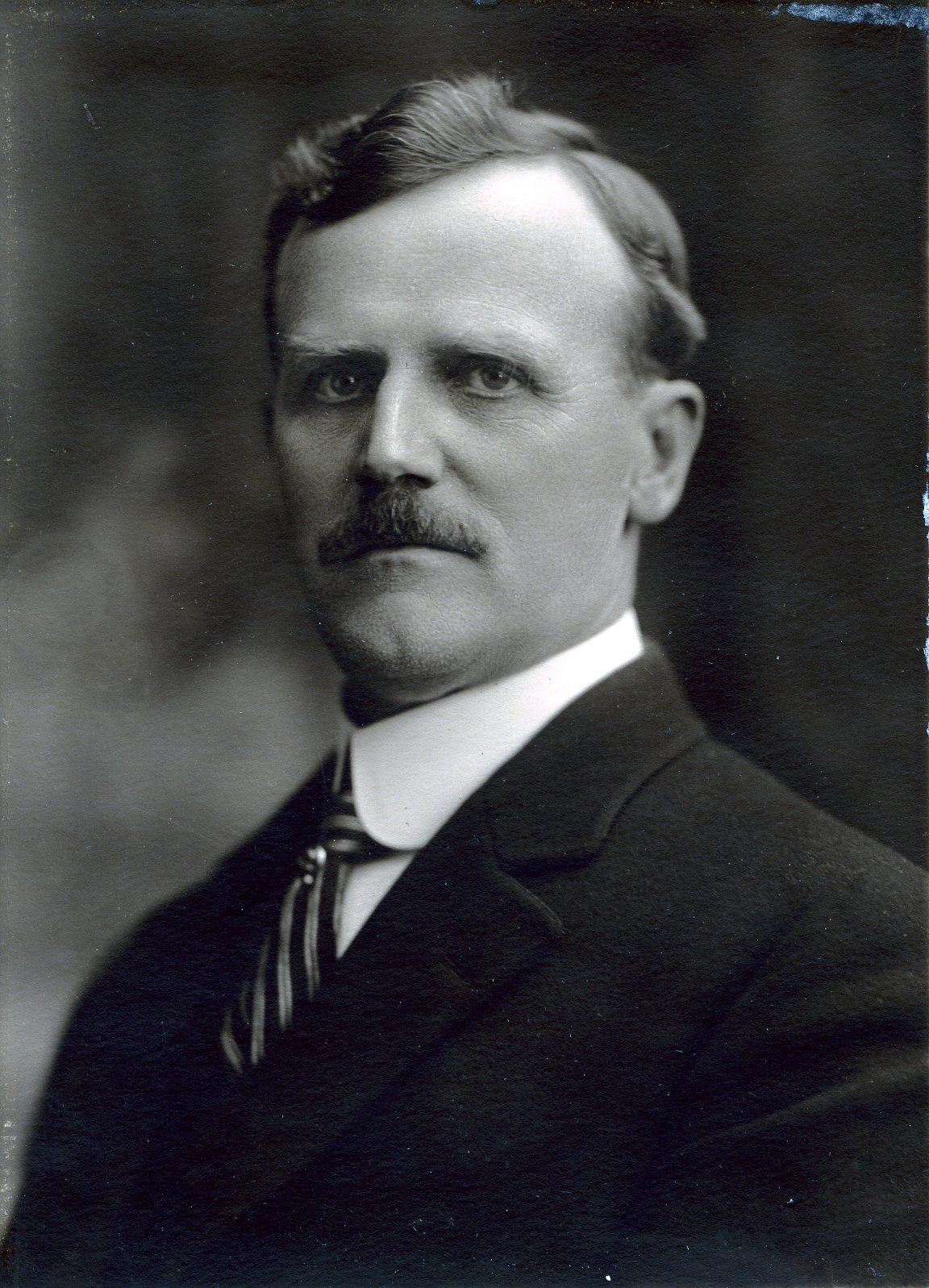 James C. EgbertArchaeologist/EditorCenturion, 1912–1948
James C. EgbertArchaeologist/EditorCenturion, 1912–1948 -
 William J. ForbesMerchantCenturion, 1898–1921
William J. ForbesMerchantCenturion, 1898–1921 -
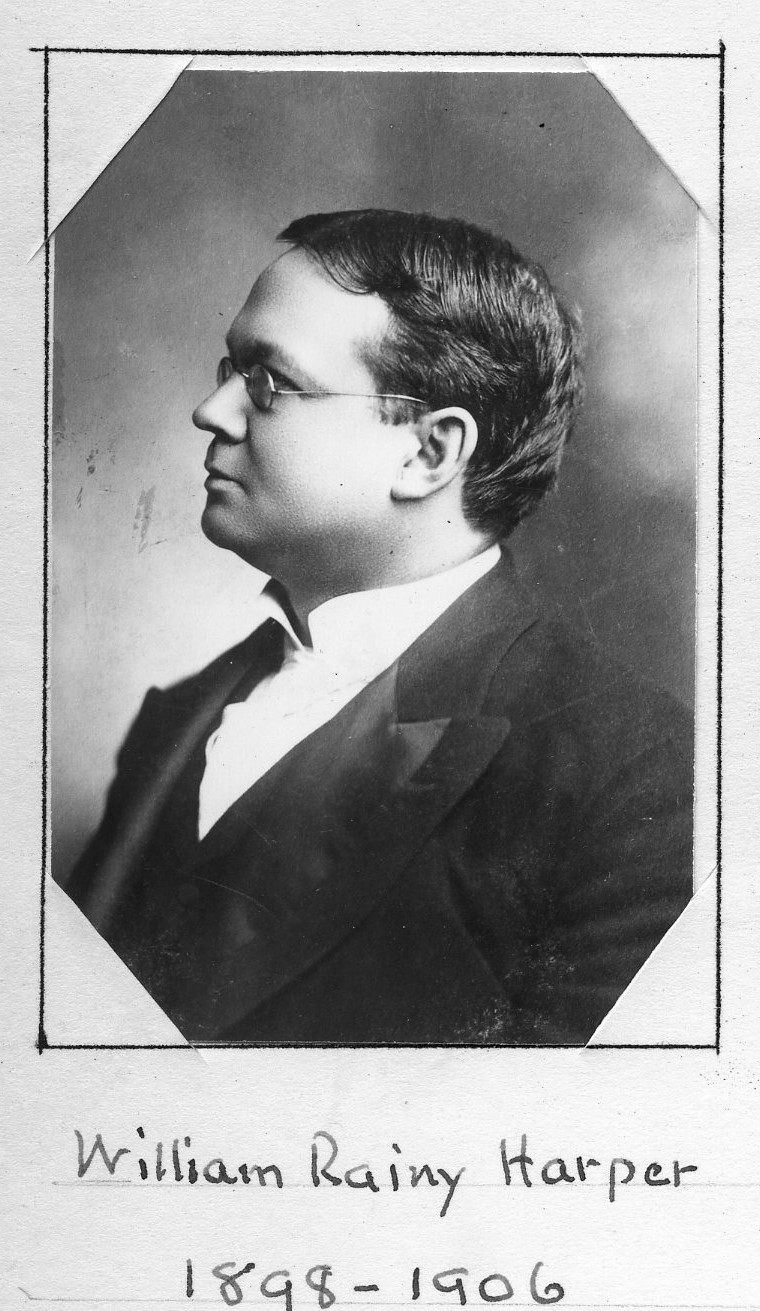 William Rainey HarperPresident, University of ChicagoCenturion, 1898–1906
William Rainey HarperPresident, University of ChicagoCenturion, 1898–1906 -
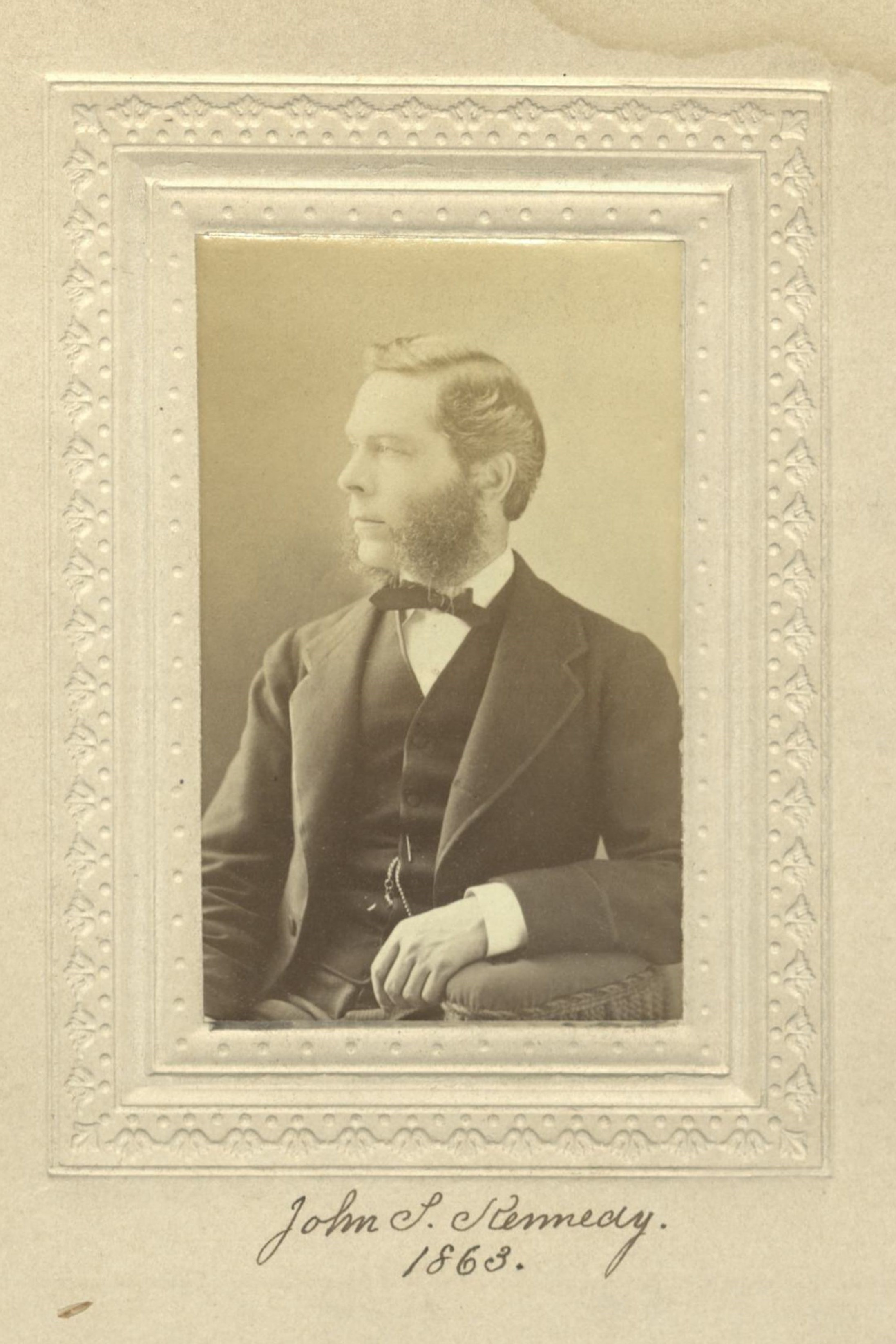 John S. KennedyFinancier/PhilanthropistCenturion, 1863–1909
John S. KennedyFinancier/PhilanthropistCenturion, 1863–1909




